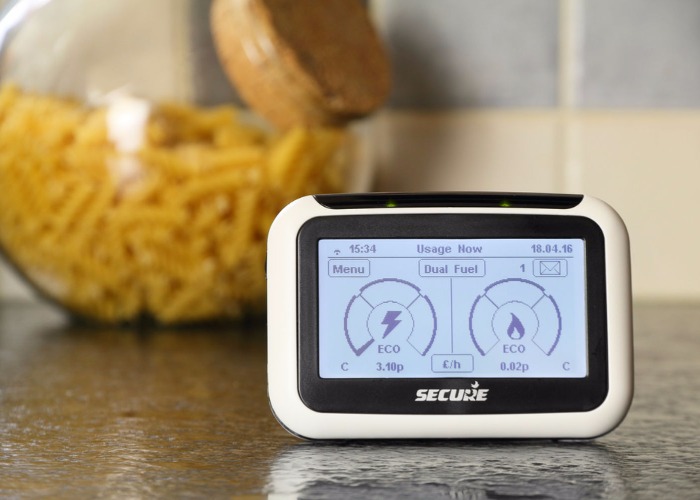Faulty displays, cutting customers off remotely, missed Government targets, and other common smart meter problems

From disconnected struggling households remotely to a shocking North-South divide, we delve into eight of the biggest blunders surrounding smart meters.
It’s fair to say that many of our readers aren’t fans of smart meters, and we can see why.
Almost 15 years after the former Government announced plans to install one of these devices in every home, it seems like the rollout has lurched from one disaster to another.
Here, we look at seven of the biggest smart meter controversies.
Energy bills ‘to soar £146 from October’
1. A bungled rollout
Back in 2011, David Cameron’s Government unveiled its target to have a smart meter in every UK home and business by 2019.
Given the eight-year lead-in period, this timeframe didn’t seem overly ambitious.
However, it soon became apparent that things weren’t on track as a string of technical issues led to low take-up rates.
In fact, the deadline has now been pushed back three times.
In 2023, the former Government unveiled a revised plan to have smart meters in 74.5% of homes and nearly 69% of small businesses by the end of 2025 (six years after the full rollout was meant to be complete).
Despite the extension, there is still a long way to go. At the beginning of 2024, figures from regulator Ofgem revealed that just 60% of all premises have a smart meter.
2. Charging for replacements
When it comes to smart meters, defective in-home displays (IHDs) are among the most common user complaints.
When working properly, IHDs are meant to show how much gas and electricity you’re using in almost real time.
However, a host of things can (and do) go wrong, including blank screens, lost connections and meters displaying wildly inaccurate readings.
And alarmingly, new research from consumer group Which? found that some people are having difficulty getting their energy company to fix these faulty devices.
Under current rules, firms are only required to repair or replace a malfunctioning IHD within the first 12 months after installation.
Once this period has ended, companies can charge for providing a replacement.
According to the findings from Which?, these charges typically range from £30 to £50.
The researchers also identified significant differences in how suppliers treat customers reporting a faulty display.
For example, British Gas will provide a free replacement after 12 months for some customers, including vulnerable people without internet access.
If you’re a Utility Warehouse customer, you can receive a free repair unless you’ve had multiple replacements.
Best and worst energy firms for customer service
|
PROMOTION
|
||
|
3. Disconnecting people remotely
When trying to convince us to have a smart meter in our homes, energy companies don’t tend to advertise the fact that these devices can – in certain cases – make it easier for them to cut off our energy supply.
Once you’ve had a smart meter installed, your provider could potentially disconnect you if you have fallen behind with your payments without needing access to your property or your meter.
Before it can do so, however, the company must have contacted you to discuss a repayment plan and visited your home to assess how cutting off your supply would impact your circumstances.
If your supplier disconnects you remotely without taking these steps, you should lodge a complaint with the Energy Ombudsman.
4. Millions of broken meters
According to data released by the Department of Energy Security and Net Zero in March this year, almost four million smart meters in Great Britain aren’t working correctly.
Many of these issues impacted households with a first-generation smart meter who switched from one provider to another.
In this case, meters often reverted to ‘dumb’ mode as customers still needed to send readings to their provider manually.
Although second-generation smart meters are meant to retain their ‘smart’ features if a customer moves to a new supplier, it’s hardly a surprise that many of us remain sceptical.
5. A forced rollout?
Despite the catalogue of errors surrounding the rollout, energy giants remain insistent that these devices are the way forward.
Earlier this year, Centrica boss Chris O’Shea suggested that compulsory installation should take place on a street-by-street basis across the UK.
He went as far as to suggest that British Gas – a subsidiary of Centrica – could install the devices on behalf of other energy companies.
You can read our full take on this suggestion in this opinion piece.
6. A closed shop on top tariffs
Following on from the point above, some energy firms also reserve their most competitive deals for those with a smart meter.
This means that customers who opt out of having a smart meter may be blocked from receiving the best deals on their energy prices.
Again, this is hardly in the spirit of a fair and competitive market, especially with many of us still reeling from the cost-of-living crisis.
|
PROMOTION
|
||
|
7. We’re all stuck with the bill
Energy companies like to tell us that we can have a smart meter installed for free.
While there isn’t an upfront fee for the installation, almost all UK households have – indirectly – absorbed the cost of the rollout.
Since providers are responsible for funding the rollout, firms have built these costs into their tariffs, causing bills to rise.
As a result, households that have chosen not to have a meter installed are still forking out for something they don’t want.
Can you make your energy company pay you?
8. There's a North-South divide in how they work
We'll finish with the most recent scandal, which we wrote about last month.
It turns out you're far more likely to suffer issues with your device if you live in Scotland or Northern England because these areas make use of older technology.
Devices fitted in Wales, the Midlands and Southern England make use of mobile phone networks to send data back to energy suppliers.
However, those further North make use of older radio waves instead, which are less reliable and mean devices are more prone to issues.
Have your say
Which of the points on our list annoys you the most? Or perhaps you think we’ve missed something...
Playing devil’s advocate, you might be a fan of smart meters. Perhaps you’ve had one installed and never looked back.
We’d love to hear your thoughts in the comments below.
Comments
Be the first to comment
Do you want to comment on this article? You need to be signed in for this feature
